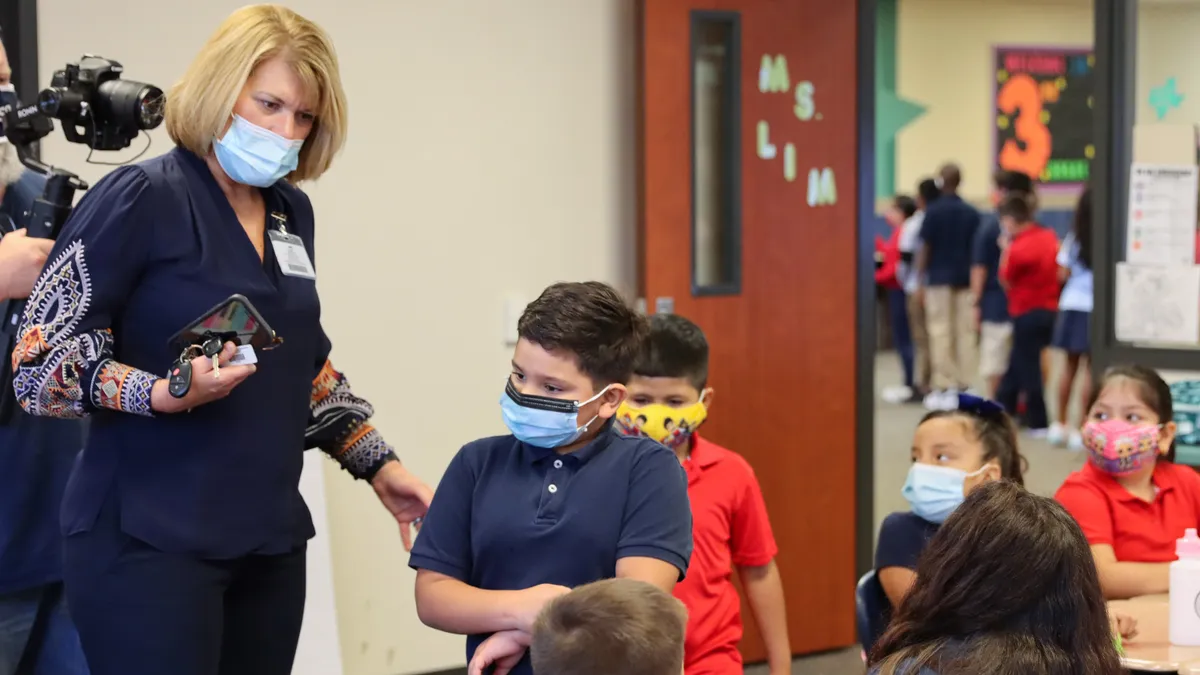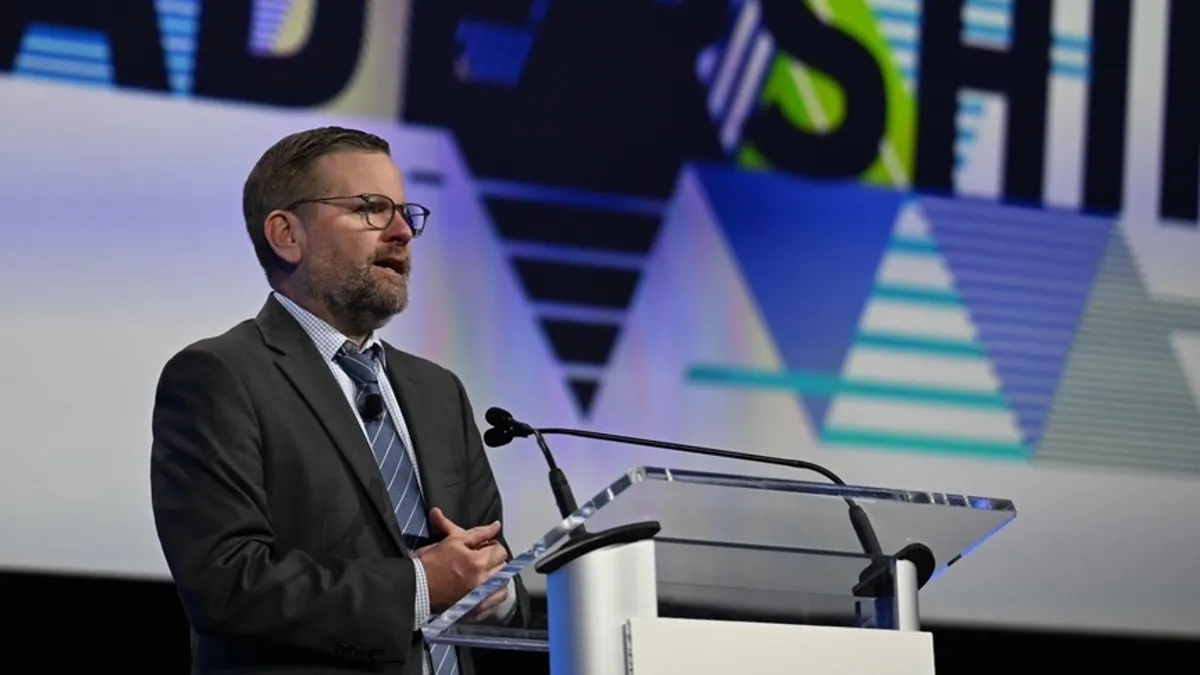Over the next three years, the Bill and Melinda Gates Foundation has committed to donating a total of $34.7 million toward the creation of five new “teacher transformation centers” in at least four different states.
The goal: To improve student outcomes by improving teacher quality.
As the first investment made by the foundation as part of a larger initiative focused on teacher prep, the sizeable sum comes at a pivotal moment. With the Every Student Succeeds Act now signed into law, some education experts are worried about a potential negative impact on teacher prep and training.
Kenneth Zeichner, the Boeing Professor of Teacher Education at the University of Wisconsin-Madison’s School of Education and a member of the National Academy of Education, previously noted that “provisions in the Every Student Succeeds Act that relate to teacher preparation academies have been primarily written to support entrepreneurial programs like those funded by venture philanthropists.” He added that support would likely go to “fast-track teacher education programs” like Teach For America and the Relay Graduate School of Education.
His qualm was that such programs “place individuals in classrooms as teachers of record before they complete certification requirements."
With Relay among the five grant recipients, will the Gates support for teacher prep fall in line with Zeichner’s projection? In a November press release, the Gates Foundation called the centers “cooperatives,” stressing that they will work by facilitating partnerships between higher education institutions, teacher preparation providers, and K-12 school systems.
The grant is divided between five pre-existing programs: Elevate Preparation, Impact Children (EPIC) in Massachusetts; the National Center for Teacher Residencies (NCTR) in Chicago; the TeacherSquared program at the Relay Graduate School of Education (various locations); TeachingWorks at the University of Michigan; and the University-School Partnerships for the Renewal of Educator Preparation (U.S. PREP) National Center, which is based at Texas Tech University.
An additional $3.2 million dollar grant was made to a Florida company, the Teacher Preparation Inspectorate, US, which is mandated to track each center’s progress, and provide feedback to them as well as the Gates Foundation.
In response to a request for an interview, the Gates Foundation directed Education Dive toward its Impatient Optimist blog, where some transformation center leaders have posted updates about their grant-funded work.
In Texas, the U.S. PREP program aims to create what they describe as “authentic school-university partnerships.”
To do so, they’ve paired six universities with local K-12 districts: Texas Tech University with the Lubbock ISD, Southern Methodist University with Dallas ISD, University of Houston with Houston ISD, Southeastern Louisiana University with St. Charles Parish Schools, Jackson State University with Jackson Public Schools, and the University of Memphis with Shelby County Schools.
The plan is to see if teachers-in-training can be better-served by heightened cooperation and direct dialogue between the K-12 districts and universities. With feedback from district leaders, the idea is that the next generation of teachers will be better equipped with real-world knowledge once they move on to working in actual classrooms.
Meanwhile, in Chicago, the NCTR is working alongside the American Institutes for Research. The NCTR wants to adopt a teachers’ residency program in the U.S., and expand clinically-based programming throughout 30 existing residency programs.
The Relay Graduate School of Education is engaged in another tactic. There, the TeacherSquared initiative, also known as Teacher2, is collecting “knowledge” and data from roughly 20 teacher prep programs in 10 states to build capacity, then sharing information among the participating institutions, creating a resource bank, and analyzing what commonalities exist in an effort to define skillsets for those teaching the teachers.
Some participants include Aspire Public Schools, the Sposato Graduate School of Education, Urban Teachers, and the YES Prep Teaching Excellence Program.
The program will be led by Relay Provost Dr. Brent Maddin, a former founding teacher at an IDEA College Prep charter school in Texas.
"Unlike medical or law schools, for example, there is little agreement over which specific teacher prep skills or techniques are of most help later on in the K-12 classroom, nor the best ways those skills and techniques can be learned," Dr. Maddin recently blogged about TeacherSquared. "Rather than staying lone islands, our teacher prep schools are forming a strong continent that stands to have an exponential impact."
In Massachusetts, the EPIC program works with each of the Bay State's pre-existing 71 individual teacher prep providers. There, too, information between providers is supposed to be shared and cross-checked. The funding, according to the Gates Foundation, will “deepen [the] quality of field-based experiences [and] support data-driven analysis.”
“[In Massachusetts] our first-year teachers are not as effective with students as we need these teachers to be, and they are more likely to be assigned to our most vulnerable students,” Heather Peske, of the Massachusetts Department of Elementary and Secondary Education wrote for the Impatient Optimist blog.
Last but not least, TeachingWorks in Michigan received $6.8 million in Gates grants. The organization plans to provide support to those working in the other teacher transformation centers, develop practice-based assessments for teachers in training, and also act as a distributor for lessons learned by the various centers.
Dr. Deborah Loewenberg Ball leads the initiative.
“Through TeachingWorks, she is leading an effort to develop a comprehensive professional training curriculum that spans initial training through at least the first three years of teaching practice,” her bio at the University of Michigan’s website states, “with corresponding assessments to determine whether beginning teachers are ready to be responsible for a classroom of students.”
Would you like to see more education news like this in your inbox on a daily basis? Subscribe to our Education Dive email newsletter! You may also want to read Education Dive's look at whether the e-day has gained enough traction to usurp the snow day.






 Dive Awards
Dive Awards















